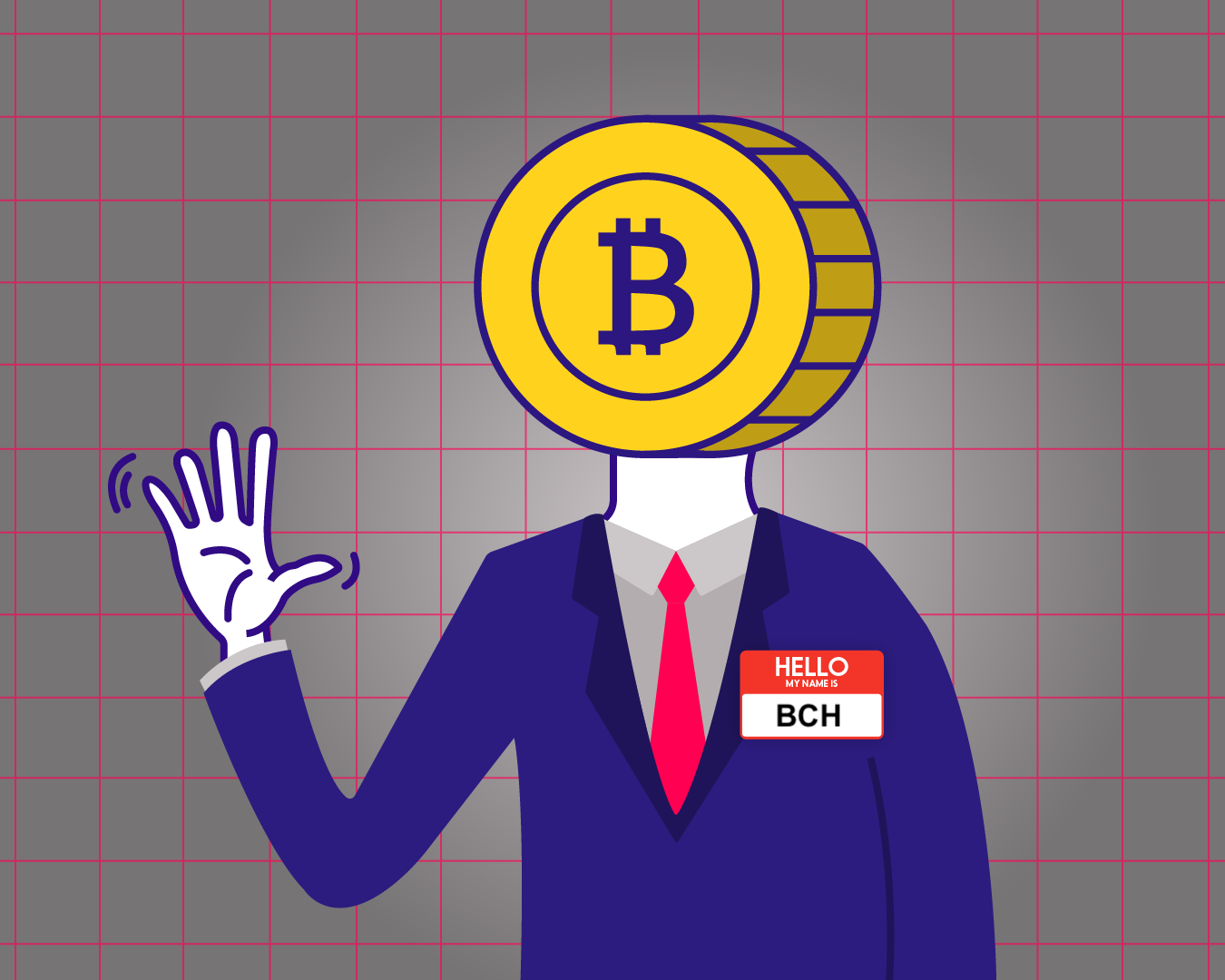There are many cryptocurrencies with the word Bitcoin in the name, and you may be wondering what they have to do with the original cryptocurrency. Bitcoin Gold, Bitcoin SV, Bitcoin Diamond and even Bitcoin Cash are not the original Bitcoin, but most of them possess the original Bitcoin foundations.
So, what does that mean? Let’s dive into the complete guide to what is Bitcoin Cash, covering everything you need to know about BCH.
What is Bitcoin Cash (BCH)?
Bitcoin Cash is the product of one of the most controversial topics of Bitcoin’s code: block size and scalability. Bitcoin (BTC) blocks can hold 1MB of data, which works out to be roughly 2,700 transactions per block. If we look at scalability, this equates to approximately 4.6 transactions per second, and when compared to Visa’s 1,700 transactions per second, this isn’t very attractive for a payment method.
In August 2017, Bitcoin Cash was created from a hard fork of BTC. Some members of the community were in disagreement with where they wanted the original cryptocurrency to go, so a team formed and they split the blockchain into two.
Those on the new blockchain formed their own community and chose to increase the block size on the blockchain to facilitate faster transactions and increase scalability. The new blockchain reflected these updates to the Bitcoin protocol, but soon saw another fork in the road.
In November 2018, another group of developers forked the Bitcoin Cash blockchain and created Bitcoin SV (BSV) and Bitcoin ABC (BCHABC). Bitcoin Cash ABC remained the original version of Bitcoin Cash and saw little impact.
So what is Bitcoin Cash? BCH is an updated version of BTC with increased block sizes, from 1MB to 8MB, offering faster transactions and lower fees. Bitcoin Cash also recognised a potential security downside to the increased block size, so incorporated an adjusted level of security to the blockchain.
With faster transactions, Bitcoin Cash provided a better “real world” use case as merchants and users could use the digital currency to facilitate transactions more effectively.
Bitcoin vs Bitcoin Cash
As we’ve briefly touched on, there are several fundamental differences between Bitcoin and Bitcoin Cash. The two cryptocurrencies both offer similar services, however differ in notable ways. Here are the biggest differences when comparing Bitcoin vs Bitcoin Cash:
Block Size
The blocks on Bitcoin’s blockchain can hold 1MB of data, while Bitcoin Cash’s initial block was 8MB. After ongoing another update on the network, Bitcoin Cash blocks can now hold 32MB of data.
SegWit
SegWit is a protocol layer that was proposed for Bitcoin’s blockchain to increase the number of transactions that a block can hold, without increasing the block size. SegWit decreases the size of transactions by 75%, ensuring that more transactions would be processed without the compromise on block size. Bitcoin incorporates SegWit however Bitcoin Cash does not.
Lightning Network
Lightning Network is a second layer on top of the BTC protocol that allows for instant transactions without a fee. Similar to the SegWit layer, Bitcoin supports it and Bitcoin Cash does not.
Mining Difficulty
To compensate for the potential security threats of increased block sizes, Bitcoin Cash incorporated a more difficult mining mechanism so that miners can mine blocks more quickly and with less threat.
Bitcoin Cash Hard Fork
As mentioned earlier in this complete guide to what is Bitcoin Cash, the network underwent a hard fork in November 2018 due to opposing ideas. The split created a new cryptocurrency, Bitcoin SV (BSV).
Bitcoin ABC remained the original version with the same leadership, while Bitcoin SV was led by controversial businessman Craig Wright (who claims to be the original Satoshi Nakamoto but has little evidence to support this) and Calvin Ayre. On 14 November, BCH traded at $425.01 but the next day following the hard fork BCH traded at $289, while Bitcoin SV traded at about $96.50.
Today, BCH has a 24h trading volume of $5.1b while BSV has a trading volume of $342m. To put this in perspective, Bitcoin’s 24h trading volume is $686b.
What Is Bitcoin Cash Used For?
When Bitcoin Cash was created, it was decided that there would only ever be 21 million coins in circulation. Harnessing on similar concepts of Bitcoin, Bitcoin Cash is also a deflationary currency, meaning that the value will increase over time. As Bitcoin Cash can facilitate faster transactions, it’s use case for merchant trading is much greater than that of Bitcoin and several other cryptocurrencies.
The lower fees also allow micro-transactions, such as tipping and rewarding users. The company is also affiliated with CashFusion, which allows anonymous transactions, and CashShuffle, a privacy protocol layer.
The Complete Guide To What Is Bitcoin Cash (BCH)
Bitcoin Cash holds great potential in terms of real time crypto use, particularly for shops and merchants around the world (which it is steadily onboarding). With a focus on adoption, this cryptocurrency could spearhead how we incorporate crypto payments in our everyday lives and very well change the future of payments forever.
_________________________________________________________
Oobit Technologies Pte, 50 Raffles Place #37-00 Singapore Land Tower, Singapore (048623). is a company registered in Singapore (no:201716443G), that has been approved as Appointed Representative of Oobit Technologies OÜ, Harju maakond, Tallinn, Lasnamäe linnaosa, Väike-Paala tn 2, 11415, (no: 14852617 ). Which is authorized and regulated by the FIU (no: FVR001421 and FRK001304).

